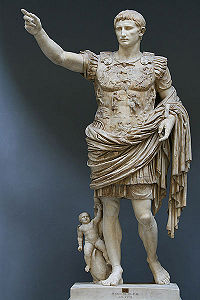For as rosy of a picture as the Roman political powers wanted to show Rome to be, it simply was not the case. Forms of resistance to Roman authority were highly varied and practiced by all sorts of cultural sub groups. Firstly, philosophers were exiled and murdered because they offered complex ideas about democracy that would potentially subvert the power that the Roman emperors wielded over the subjects. Also, prophets, seers and diviners were treated similarly. For example Tacitus (69 ce) prophesied the eventual demise of the state of Rome, leading people to believe he was correct. Besides ideas from philosophers, prophecies from diviners or seers, or other non-violent acts of resistance, there were also forms of violent unrest. These acts of violence could range from public unrest (protesting) to outright violence in the form of riots. Augustus is even known to have withheld food from these rioters as punishment for their unruly behavior. Furthermore, violent acts of resistance also took other forms. There were pirates on the sea and bandits on the land, who would usually rob the Roman elite of their wealth, thus robbing them of their “power”. The Jews also had their own forms of resistance to Roman authority. For example, the Jews staged a sit-in at Pilate’s house when he received images of Caesar. After five days in the sit-in, Pilate ordered the soldiers to kill the protestors. However, when they showed their willingness to be martyred, Pilate withdrew the command, probably knowing that if in fact he created martyrs out of them it would only subvert the Roman authority more. Augustus and other emperors required a daily sacrifice be made twice in their names. Lower priests stopped this sacrifice in a non-violent form of demonstration against Roman authority. Josephus considered this action and the foundation for war with Rome. Lastly, resistance took its form in writing. From Jewish and Egyptian people, they wrote similarly about how Rome’s control and power over them was merely a period of God’s punishment and that eventually he would destroy Rome and lead his chosen people to rule. This is not unlike the narrative that John establishes in the book of Revelation later on. These acts of resistance are interesting due to the fact that the Roman authorities constantly and fervently tried to show Rome as a place of peace, freedom, affluence and happiness. For as much as Rome did in fact dominate so vast a population, it was never without its struggles to maintain its power over its subjects. In fact, given the amount of resistance that documented, it is fair to assume that there was a large portion of the empire that was unhappy with the way they were governed.

